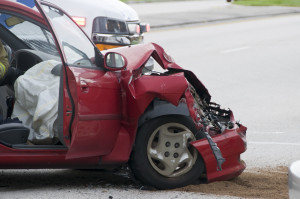
Who Was Responsible For my Injuries? My Employer or the Driver?
What happens if you are a driver for a package delivery service and you’re on the road most of your workday? Say, then, you get into an car accident with another vehicle that was responsible for said accident? As a result, you obtain back problems and have to miss many extra days at work for the injuries. Where do you turn? How do you know who was responsible – the other driver or your employer, since you were on-the-job at the time of the injury?
What Does “On the Job” Really Mean?
Almost all states make it a requirement that you be “on the job” when your injury occurs to be able to receive workers’ compensation benefits. Were you injured at your place of work? Then you were definitely “on the job.” However, there are many other situations that may apply as well. For instance, if you were making deliveries for work, that is considered to be “on the job,” too! That means that your injury will apply.
Other situations that apply are running an errand for your boss or employer, transporting other employees, driving for a living, traveling for work with no fixed office, and being paid by your employer for travel time to or from your home. If you were just going to and from work, then you will not be able to receive benefits. However, if you were making deliveries in light of your work, then you certainly can (Landers).
What Is Employer Negligence?
A company has a duty to hire somebody reasonable to be a safe driver for the company – and if they refuse to do so, then negligence may be involved. If an employee is to be driving a commercial vehicle, then the employer should always check to make sure that the employee has a commercial driver’s license. If the driver’s license was suspended or taken, then they should think twice.
There is also something known as Negligent Supervision, which is having reasonable safety policies in place and making sure that all drivers comply with safety laws. If an employer isn’t checking to make sure that standards are being followed on certain levels, then there is an issue at hand. If an employee is failing to take reasonable care on the job and an employer knows this, then the employer could be held liable for negligence in light of an accident arising (AllLaw).
If An Accident Occurs, Can I Bring Both a Workers’ Compensation Claim and a Civil Claim?
Usually, you will not have to choose between filing a workers’ compensation claim and filing a civil claim. Yes, you may receive workers’ compensation benefits, but that doesn’t mean you’re only limited to them – you can also look forward to seeking damages from the other driver who caused the car accident. However, if you seek those damages, your employer may have a “lien” against your compensation. This means reimbursement (Landers).
If you have become injured on the job due to any duties you were performing, it may be time to seek guidance from an experienced personal injury attorney. You can call RAWA today to get a consultation and start making strides toward the compensation you deserve!
Works Cited:
David Landers. Nolo, 2015. Web. Accessed Nov 12, 2015. https://www.all-about-car-accidents.com/resources/auto-accident/car-accident-claims/workers-comp-injury-how-car-accidents-treated
AllLaw. AllLaw, 2015. Web. Accessed Nov 12, 2015. https://www.alllaw.com/resources/car-accident-claims/employer-liability.htm
